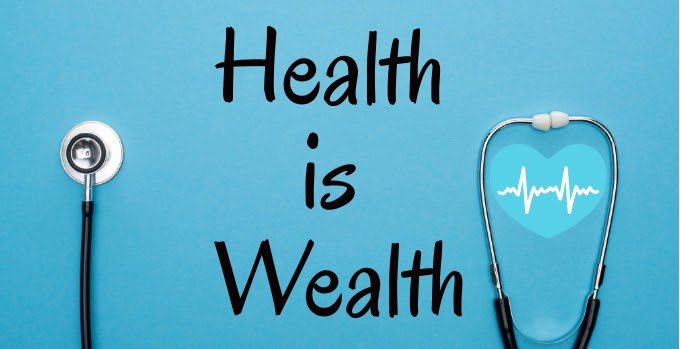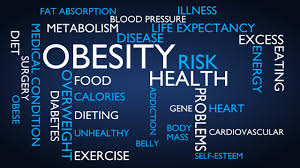Ever wondered what keeps your bones in tip-top shape and your immune system ready to tackle the world? The answer might be basking in the sun, at least for a little while. Vitamin D, often referred to as the sunshine vitamin, is crucial for our health and well-being. In this blog post, we are going to explore why Vitamin D should be a top priority in your health regimen, whether you are a parent, a fitness buff, or a nutritionist. We will uncover the numerous benefits, discover natural sources, and demystify the symptoms of Vitamin D deficiency. By the end of this post, you will know exactly how to ensure you and your family are getting enough of this vital nutrient.

What Is Vitamin D Good For?
Vitamin D is more than just a vitamin it is a powerhouse that plays several roles in the body. Its primary function is to help improve calcium absorption, which is essential for bone health. This means stronger bones and a reduced risk of fractures as we age. But thats not all. Additionally, Vitamin D is pivotal in supporting our immune system. It acts as a barrier against infections by enhancing the pathogen-fighting effects of monocytes and macrophages—white blood cells that are crucial parts of your immune defense. For those in the fitness community, Vitamin D is also believed to improve muscle function and reduce inflammation, making it a key player in recovery and performance. Finally, emerging research suggests that adequate levels of Vitamin D might even help ward off chronic diseases like diabetes and heart disease. With such multifaceted benefits, it is clear why Vitamin D is essential for everyone, from health enthusiasts to parents ensuring their children grow strong.
What Are the Symptoms of Low Vitamin D?
Identifying symptoms of low Vitamin D can be tricky since they can be subtle and easily mistaken for other issues. One of the most common symptoms is fatigue. If you feel unusually tired despite getting enough sleep, it might be worth checking your Vitamin D levels. Another indicator is bone pain or weakness, which can sometimes manifest as a dull, achy feeling in the bones. This is because Vitamin D helps maintain bone density, and a deficiency can lead to weaker bones, increasing the risk of fractures and osteoporosis over time. Low Vitamin D levels can also cause mood changes, such as depression or anxiety. This is due to the vitamins role in brain function and mood regulation. If you have been feeling down without a clear reason, it might be beneficial to consider your Vitamin D intake as a potential factor.
How Do I Get Enough Vitamin D?
Ensuring you get enough Vitamin D does not have to be a daunting task. The most natural way to boost your Vitamin D levels is through sunlight exposure. Spending about 10-30 minutes in the sun a few times a week can significantly improve your Vitamin D status, especially during midday when the sun rays are strongest. Another excellent source is through your diet. Fatty fish like salmon, mackerel, and sardines are rich in Vitamin D. Additionally, egg yolks and fortified foods such as milk, orange juice, and cereals can contribute to your daily intake. By incorporating these foods into your meals, you can help maintain healthy Vitamin D levels. For those who may still find it challenging to get enough Vitamin D through sunlight and diet alone, supplements are a viable option. It is important to consult with a healthcare professional to determine the appropriate dosage for your individual needs, as taking too much can have adverse effects.
What Are the Sources of Vitamin D?
Vitamin D can be obtained from three main sources: sunlight, food, and supplements. Sunlight is arguably the most efficient source, as just a few moments outside can prompt your skin to produce its own Vitamin D. This is particularly effective for those living in sunny climates. When it comes to dietary sources, fatty fish like salmon and tuna are top contenders. They not only provide a good dose of Vitamin D but also come with the added benefit of Omega-3 fatty acids, which are great for heart health. Fortified foods, such as dairy products and orange juice, are conveniently accessible options to help meet your Vitamin D needs. Supplements are the third source, often recommended for individuals who have limited sun exposure or dietary restrictions that make it difficult to obtain Vitamin D naturally. These supplements are available in both Vitamin D2 and D3 forms, with D3 being the more potent option. Always remember to consult a healthcare provider before starting any new supplement regimen.
Natural Sources of Vitamin D
Mother Nature provides several natural sources of Vitamin D, which are both delicious and beneficial. Fatty fish, such as salmon, mackerel, and sardines, are not only rich in Vitamin D but also packed with essential Omega-3 fatty acids. These can easily be added to salads, sandwiches, or enjoyed as a main course. Egg yolks are another natural source, often overlooked. They are versatile and can be incorporated into various dishes, from breakfast scrambles to baked goods. Including eggs in your diet can help boost your Vitamin D intake without much effort. Finally, mushrooms, particularly those exposed to ultraviolet light, can be an excellent plant-based source of Vitamin D. Grilled, sautéed, or raw, mushrooms can be a delightful addition to your meals, providing not only Vitamin D but also other vital nutrients.
Vitamin D Benefits
The benefits of Vitamin D extend far beyond bone health. One of its significant advantages is its role in boosting the immune system. By enhancing your bodys defense mechanisms, Vitamin D can help you fend off illnesses and recover more quickly from infections. Furthermore, Vitamin D is linked to mood regulation and cognitive function. Adequate levels of this vitamin are associated with a decreased risk of depression and improved mental clarity. For those navigating stressful lives, maintaining sufficient Vitamin D levels can contribute to emotional well-being. Lastly, Vitamin D supports cardiovascular health. Studies suggest that it may help regulate blood pressure and reduce the risk of heart disease. With such a wide range of benefits, ensuring sufficient Vitamin D intake is a wise choice for anyone looking to enhance their overall health.
Why Vitamin D Is a Must for Families
For parents, ensuring children receive enough Vitamin D is crucial for their growth and development. This vitamin plays a significant role in building strong bones and teeth, which are essential for kids as they grow. Encouraging outdoor playtime and a balanced diet rich in Vitamin D can set the foundation for lifelong health. In addition to physical health, Vitamin D supports cognitive development in children. Adequate levels are associated with better focus, memory, and learning abilities. Incorporating Vitamin D-rich foods into your familys diet can help support educational success. For adults, Vitamin D contributes to maintaining bone density and reducing the risk of osteoporosis. It also supports immune function, helping to keep colds and flu at bay, which is especially important for busy parents and professionals juggling multiple responsibilities.
Vitamin D and the Fitness Community
For fitness enthusiasts, Vitamin D is a game-changer. It plays a key role in muscle function and recovery, making it an essential nutrient for athletes and those engaged in regular physical activity. Ensuring you have adequate levels can help improve performance and reduce the risk of injury. Furthermore, Vitamin D supports cardiovascular health, which is crucial for endurance and stamina. Whether you are a marathon runner or a weekend warrior, maintaining optimal Vitamin D levels can enhance your workouts and overall fitness. Lastly, Vitamin D is involved in energy production. By promoting efficient oxygen utilization in the body, it can help you power through even the toughest workouts with sustained energy levels. For anyone serious about their fitness goals, Vitamin D is not to be overlooked.
How To Incorporate More Vitamin D Into Your Life
Incorporating more Vitamin D into your life can be simple and enjoyable. Start by spending more time outdoors, engaging in activities like walking, jogging, or biking. Not only will you boost your Vitamin D levels, but you will also enjoy the physical and mental benefits of regular exercise. In terms of diet, try to include more Vitamin D-rich foods in your meals. Experiment with new recipes that feature fatty fish, eggs, and fortified products. Meal planning can be a fun and creative way to ensure you are getting the nutrients you need. If supplements are necessary, consider speaking with a healthcare professional to determine the right dosage for you. They can help you find a supplement that fits your lifestyle and dietary needs, ensuring you meet your daily Vitamin D requirements effectively.















Comments
Leave a comment